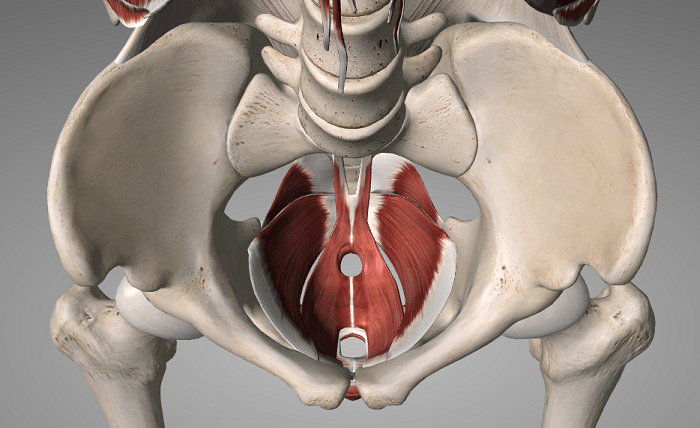How Strengthening Your Pelvic Floor Can Reduce Frequent Nighttime Urination (Nocturia)

Nocturia, or nocturnal frequency, interferes with sleep and daily energy levels. Waking up repeatedly to go to the bathroom can exhaust a person and impact overall health.
The pelvic floor muscles are also very important in controlling the bladder. As these muscles weaken, they fail to support the bladder effectively, and the individual experiences urgency and nocturia.
Pelvic Floor Physiotherapy in Edmonton offers a safe and effective treatment of nocturia. By strengthening the pelvic muscles, people can have greater bladder control and eliminate those unwanted late-night trips to the bathroom.
Why Does Nocturia Happen? More Than Just a Full Bladder
Frequent nighttime urination can stem from various factors, such as:
- Aging: With advancing age, the bladder capacity declines, resulting in greater urgency and less storage capacity.
- Weak Pelvic Muscles: Weak pelvic floor muscles decrease bladder support, resulting in leakage and frequent urination.
- Overactive Bladder: Spontaneous bladder contractions enhance the urge to urinate, even when the bladder is incomplete.
- Too Much Fluid Before Bed: Consuming too much fluid near bedtime, particularly caffeinated or alcoholic drinks, can overfill the bladder.
- Medical Illness: Illnesses such as diabetes, urinary tract infections, kidney disease, and prostate enlargement worsen nocturia.
- Medications That Act as Diuretics: Some blood pressure and heart medications cause increased urine production, resulting in more frequent nighttime bathroom visits.
- Sleep Disorders: Sleep apnea can cause nighttime urination by interrupting sleep patterns and causing hormone imbalances.
- Hormonal Changes: Reduced levels of antidiuretic hormone (ADH), which allows the body to conserve fluid during the night, can result in more frequent urination.
The Pelvic Floor-Bladder Connection: Strength Matters
Maintaining urinary control and supporting the bladder, urethra, and other pelvic organs are the functions of the pelvic floor muscles. When they are weakened by age, childbirth, surgery, or other causes, bladder function becomes impaired, causing symptoms such as urgency, frequency, and leakage.
How Weak Pelvic Floor Muscles Affect Bladder Control
Weakened pelvic floor muscles can cause various urinary problems that drastically affect everyday functioning. The most prevalent symptom is urgency, when people experience a rapid, uncontrollable urge to void. The constant need to urinate, particularly at night (nocturia), interferes with sleep and may be a cause of fatigue and lower quality of life. Stress incontinence, the second most prevalent consequence, occurs when minute volumes of urine are leaked due to a transient increase in bladder pressure by movements such as coughing, sneezing, laughing, or physical exercise.
Because the pelvic floor muscles are the primary support for the urethral sphincter, their weakening undermines the capacity to hold urine properly. This loss of bladder control can result in involuntary leakage, discomfort, and social embarrassment. In extreme cases, people may also develop a higher risk of urinary tract infections as a result of incomplete bladder emptying. Treating pelvic floor weakness through specific strengthening exercises is essential for correcting normal bladder function and enhancing overall health.
How Pelvic Floor Strengthening Helps to Minimize Frequent Urination
Pelvic floor conditioning, by specific exercises such as Kegels, enhances these muscles to cause:
- Enhances Bladder Control: Tighter pelvic muscles provide better control over urinary flow and leakage.
- Decreases Urgency: Increased muscle tone lowers involuntary urges to urinate.
- Supports the bladder: Maintains stability and takes the pressure off the bladder.
- Prevents Incontinence: Tightens muscles to reduce stress-induced leaks.
Say Goodbye to Nocturia: Physiotherapy Techniques That Work
Pelvic Floor Physiotherapy in Edmonton has various tested techniques for tightening the pelvic floor and bladder control:
- Kegel Exercises: The voluntary contraction and release of pelvic muscles improve bladder support, diminishing urgency and leakage. Strengthening muscles that enable continence avoids nocturnal urination.
- Bladder Training: In this technique, the interval between bathroom trips is gradually extended to enable the bladder to retain more urine as time passes. By adhering to a formal regimen, patients can retrain the bladder to suppress the frequent urge to urinate during the nighttime.
- Manual Therapy & Myofascial Release: These hands-on methods soothe tension within the muscles in the pelvic floor and the tissues around them. The release of tight or overactive muscles enhances overall bladder function and reduces discomfort related to nocturia.
- Postural Adjustments & Core Strengthening: Correct posture and core strength offer much-needed support to the pelvic muscles, eliminating unnecessary stress on the bladder. Abdominal and lower back muscle strengthening exercises boost stability and support improved bladder control.
By including these physiotherapy methods, the symptoms of nocturia can be significantly minimized, pelvic health can be enhanced, and sleep can be undisturbed.
Minor Lifestyle Tweaks for Big Bladder Gains
Beyond physiotherapy, simple lifestyle changes can support pelvic floor health and reduce nighttime urination.
- Mindful Hydration: Increase fluid intake earlier in the day and avoid fluids near bedtime.
- Avoid Bladder Irritants: Alcohol, caffeine, and acidic foods can all contribute to symptoms of an overactive bladder.
- Maintain a Healthy Weight: Excess weight puts pressure on the bladder, leading to urgency.
- Break the Habit of ‘Just in Case’ Urination: Frequent, unnecessary bathroom visits gradually weaken bladder control.
These changes and pelvic floor exercises lead to better bladder function.
When to Seek Professional Help?
While mild nocturia may improve with home interventions, persistent symptoms warrant professional assessment. Signs that indicate a need for help include:
- Waking up multiple times each night to urinate
- Intense, unexpected urges that are hard to resist
- Urinary leaks before reaching the bathroom
- Disrupted sleep leads to daytime fatigue
Pelvic Floor Physiotherapy in Edmonton provides targeted treatments for long-term relief. To help people get back to sleep without interruption, physiotherapists create individualized plans to strengthen pelvic muscles and regain bladder control.
Strengthen Your Pelvic Floor, Sleep Better
A healthy pelvic floor is crucial in avoiding nocturia and enhancing bladder control. Individualized pelvic floor physiotherapy in Edmonton methods habit modifications, and bladder training can significantly reduce bed wetting at night.
Vertex Physiotherapy in Edmonton provides individualized treatment plans to assist individuals in attaining enhanced bladder control and undisturbed sleep. Visiting a physiotherapist guarantees long-term relief and an enhanced quality of life.
Keywords: Pelvic Floor Physiotherapy in Edmonton, bladder control, nighttime urination, overactive bladder, pelvic muscles, bladder health, Kegel Exercises, nocturia, bladder function, pelvic floor muscles




